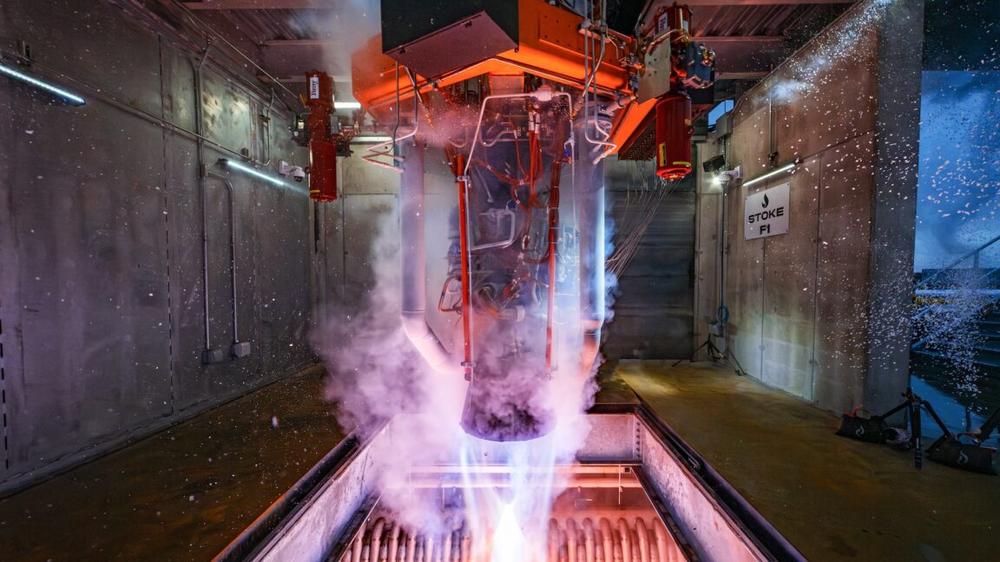Stoke Space announced a significant capital raise on Wednesday, a total of $510 million as part of Series D funding. The new financing doubles the total capital raised by Stoke Space, founded in 2020, to $990 million.
The infusion of money will provide the company with "the runway to complete development" of the Nova rocket and demonstrate its capability through its first flights, said Andy Lapsa, the company's co-founder and chief executive, in a news release characterizing the new funding.
Stoke is working toward a 2026 launch of the medium-lift Nova rocket. The rocket's innovative design is intended to be fully reusable from the payload fairing on down, with a regeneratively cooled heat shield on the vehicle's second stage. In fully reusable mode, Nova will have a payload capacity of 3 metric tons to low-Earth orbit, and up to 7 tons in fully expendable mode.
Another bright fundraising star
There are some striking parallels between Stoke Space's latest fundraising announcement and another forward-leaning launch company, Relativity Space. The latter was founded in 2016 with the promise of 3D-printing a rocket nearly in its entirety.
In November 2020, Relativity disclosed its own Series D funding, $500 million. At the time, the company had about 230 employees and was planning a launch the following year. Stoke presently has about 280 employees and intends to launch Nova next year.
Instead of lifting off in 2021, however, Relativity's Terran 1 rocket would not launch for the first time until 2023, and since that time, the company has not flown again. In fact, Relativity nearly filed for bankruptcy last year before it received a large infusion of cash from Eric Schmidt, the former Google executive. Relativity has now largely abandoned additive manufacturing rockets and is focused on the development of a more traditional rocket, the Terran R vehicle.
There are also some significant differences between the two companies. Most notably, Stoke Space's fundraising comes in an environment that is much more challenging than late 2020, both in terms of the availability of capital and confidence in the market supporting new launch vehicle companies. This indicates that current investors must be confident that Stoke can succeed where other startup launch companies have struggled. Stoke also appears to have spent less capital on large manufacturing facilities and invested more in hardware development.
Development “hell” for rockets
Regardless, launch is an expensive and difficult business. And one iron-clad rule of launch vehicle development is that the closer a vehicle gets to its first flight, the more technical challenges will arise for companies. This is sometimes referred to as the "Come to Jesus" period of rocket development.
The significant new round of investment ensures that Stoke will have the resources needed to slog through this period of development hell, which could be especially pronounced for a rocket featuring ambitious and novel technologies such as a reusable upper stage and an advanced rocket engine design.
To their credit, the company and its engineering team have an excellent reputation within the industry. They'll need all of it in the difficult months ahead before the first Nova rocket rolls out at Launch Complex 14 at Cape Canaveral and takes flight—hopefully living up to its namesake and becoming a bright new star in the launch vehicle firmament.

 All buffs and nerfs in Black Ops 6 & Warzone Season 6
All buffs and nerfs in Black Ops 6 & Warzone Season 6